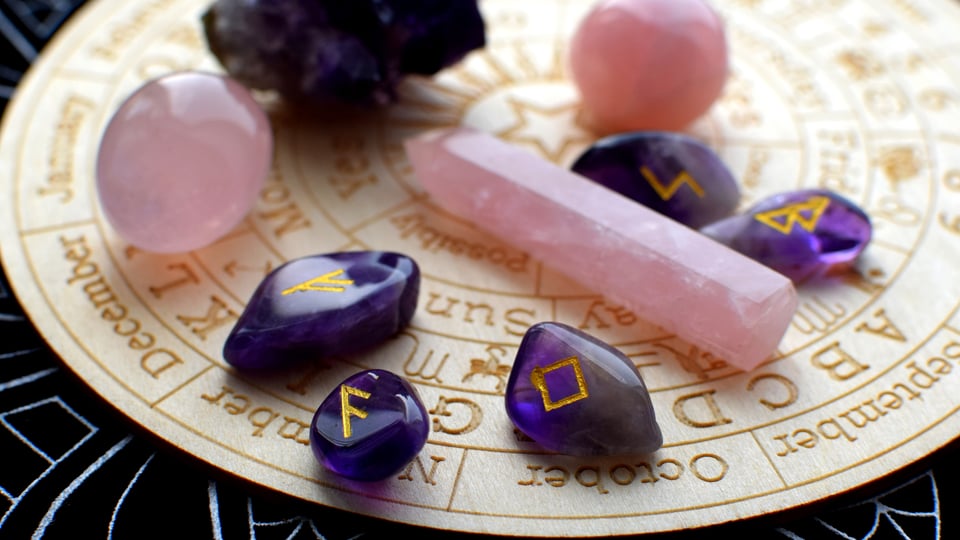Astrology and Wicca: What’s the Danger?
The occult is growing in the English-speaking nations. Is this harmless? Can one be a Christian and dabble in the occult? What does the Bible say?

In recent years there has been a steady shift away from organized religion among Americans, especially Millennials. Some of those Millennials are embracing a form of witchcraft known as Wicca. Wicca is a pagan (or neo-pagan) religion that worships nature. It has gained popularity in recent years and is practiced mostly in the United Kingdom and the United States.
Wicca has its roots in the United Kingdom, being popularized by an author named Gerald Gardner. Mr. Gardner lived most of his life in Asia, where he studied the occult and other mystical practices. Before World War II, he returned to England and founded a movement based on a reverence of nature and the worship of a mother goddess and the horned god.
In addition to Wicca, interest in astrology is on the rise. Astrology is the belief that the positions of celestial bodies have an influence in human affairs—from affecting world events to relationships.
In the last five years the interest in astrology has increased dramatically among Millennials. According to a study conducted by Australian psychologist Graham Tyson, many people are turning to astrology when facing stressful situations: “Under conditions of high stress, the individual is prepared to use astrology as a coping device even though under low-stress conditions he does not believe in it.”
In the last few decades, our society’s interest in the occult has been reflected in the entertainment industry’s production of movies and television shows, such as Harry Potter, Practical Magic, The Craft, Charmed and Sabrina the Teenage Witch. These productions have normalized aspects of the occult and marketed it to young children and teenagers.
An ancient practice
Practitioners of Wicca and astrology see consulting the spirits of nature and the universe as seeking wise counsel from a force greater than themselves—since, many believe, nature contains the answers. But these practices are not new. They can actually be traced back to ancient times, particularly to ancient Egypt and Babylon.
God specifically warned His people about many of the dark practices that are accepted today.
In the book of Exodus, when Moses confronted Pharaoh with miracles and signs from God, Pharaoh’s sorcerers were able to reproduce some of the miracles, but to a lesser extent (Exodus 7:11, 22). Later, his magicians acknowledged that Moses’ miracles were performed with the “finger of God” (Exodus 8:18-19).
When King Nebuchadnezzar of Babylon had a dream that troubled him, he consulted the “magicians, and the astrologers, and the sorcerers” for answers, but they were unable to provide any answers (Daniel 2:2, 10-13). God rebuked Babylon for its reliance on magic, sorcery and astrologers (Isaiah 47:1, 11, 12-13).
God’s warnings about the occult
God specifically warned His people about many of the dark practices that are accepted today. God calls an “abomination” those who practice these things: “one who practices witchcraft, or a soothsayer, or one who interprets omens, or a sorcerer, or one who conjures spells, or a medium, or a spiritist, or one who calls up the dead” (Deuteronomy 18:10-12).
Israel’s first monarch, King Saul, famously visited the witch of Endor to conduct a séance, which he knew was wrong (1 Samuel 28:7). This sin actually cost him his life (1 Chronicles 10:13-14).
Another king of Israel, Manasseh, “did much evil in the sight of the LORD, to provoke Him to anger” because he “practiced soothsaying, used witchcraft and sorcery, and consulted mediums and spiritists” (2 Chronicles 33:6).
In the New Testament, Simon the Sorcerer used his trickery to convince those in Samaria that he was one with “the great power of God” (Acts 8:9-10). He was strongly rebuked when he tried to buy the Holy Spirit (Acts 8:18-19, 20-23).
Many of the converts in the early Church took God’s warnings seriously and totally abandoned their former occult practices. As a result, “many of those who had practiced magic brought their books together and burned them” (Acts 19:19). The apostle Paul included “witchcraft” as a work of the flesh, one that is opposed to God’s way of life (Galatians 5:20, King James Version).
If you are a Christian but have dabbled in the occult, we recommend you meditate on the above examples and totally reject these practices yourself.
A modern warning
In the book of Hosea God warns that “My people are destroyed for lack of knowledge” (Hosea 4:6). This is referring to spiritual knowledge, not physical knowledge (which has increased exponentially over the last century). When people reject God and His knowledge, they find alternative sources for answers. The occult is just one example of people groping for answers because of rejecting God.
The modern nations of Israel—including the British, Canadian, Australian and American people—have had unparalleled access to God’s Word in modern times. But printing millions of Bibles and actually looking to the Bible for answers are two different things.
Our peoples will be held accountable for rejecting God’s knowledge revealed in the Bible and embracing instead the occult.
You don’t have to make the same mistake. You can avoid the occult and seek guidance from God’s Word to avoid being destroyed for lack of knowledge yourself. An excellent place to start is by learning about God’s 10 laws designed to govern life. Read about those laws in our free booklet God’s 10 Commandments: Still Relevant Today.
Date Posted: March 19, 2018



